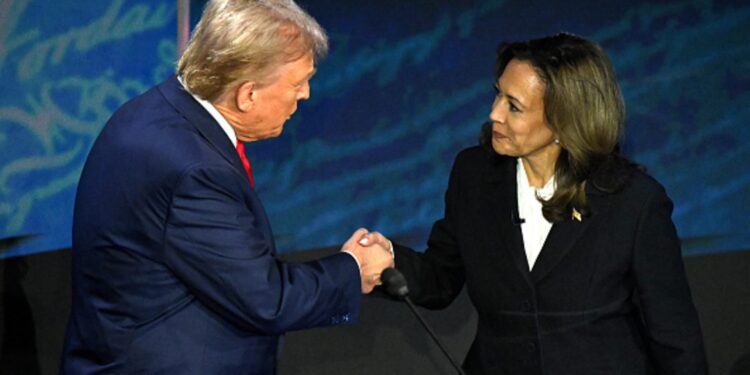Investors may be better off if November’s election ends with neither candidate having enough wiggle room to enact their economic policies, according to Citigroup. Strategist Scott Chronert said in a note to clients that proposals from both Vice President Kamala Harris and former President Donald Trump would prove negative for the stock market if they were fully enacted. “We maintain our ongoing view that either candidate’s policy platforms are U.S. equity negative, but notably in a ‘sweep’ context. We mark the Harris platform as incrementally more negative (-4% to -6%) vs the Trump platform (0% to -4%). This is mostly a function of the direct implication of higher corporate tax rates in a Harris outcome. A split congress with either candidate mitigates most of the nearer term risk to fair values,” the note said. The Harris campaign has proposed raising taxes on both corporations and capital gains for wealthy individuals. Trump has focused more on using tariffs to raise government revenue. Recent polling in swing states and the nation as a whole point to a close race for the White House. Election betting site Polymarket shows roughly 50-50 odds for each candidate. The fight for control of Congress could be tight as well, with Senate races in Montana, Nevada, Arizona and Pennsylvania among those seen as key contests. One factor looming over the election is the tax cuts from Trump’s first term, which are slated to expire in 2025. Any changes to the tax environment could affect consumer spending, corporate earnings and the federal deficit, according to Chronert. “The policy platforms for each candidate add incrementally to 10 year deficit projections. … We continue to reiterate our ongoing concern that the deficit circumstance will move more front and center with investors post election,” the Citigroup said.







